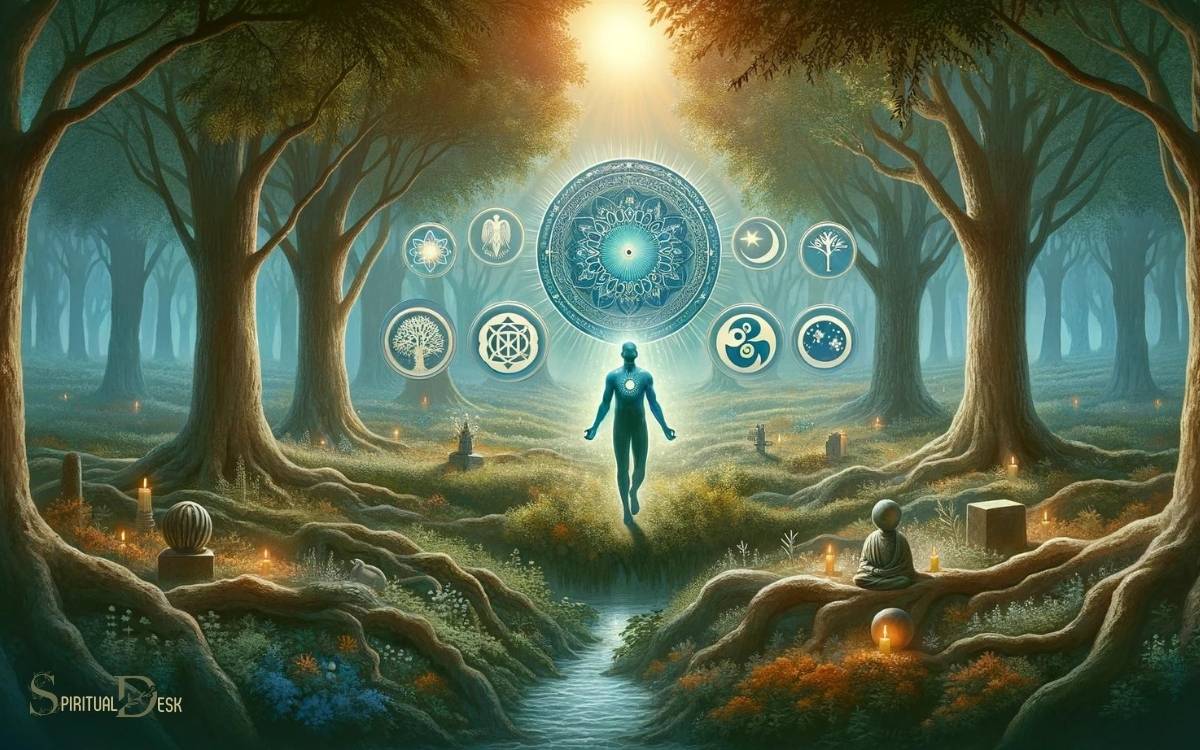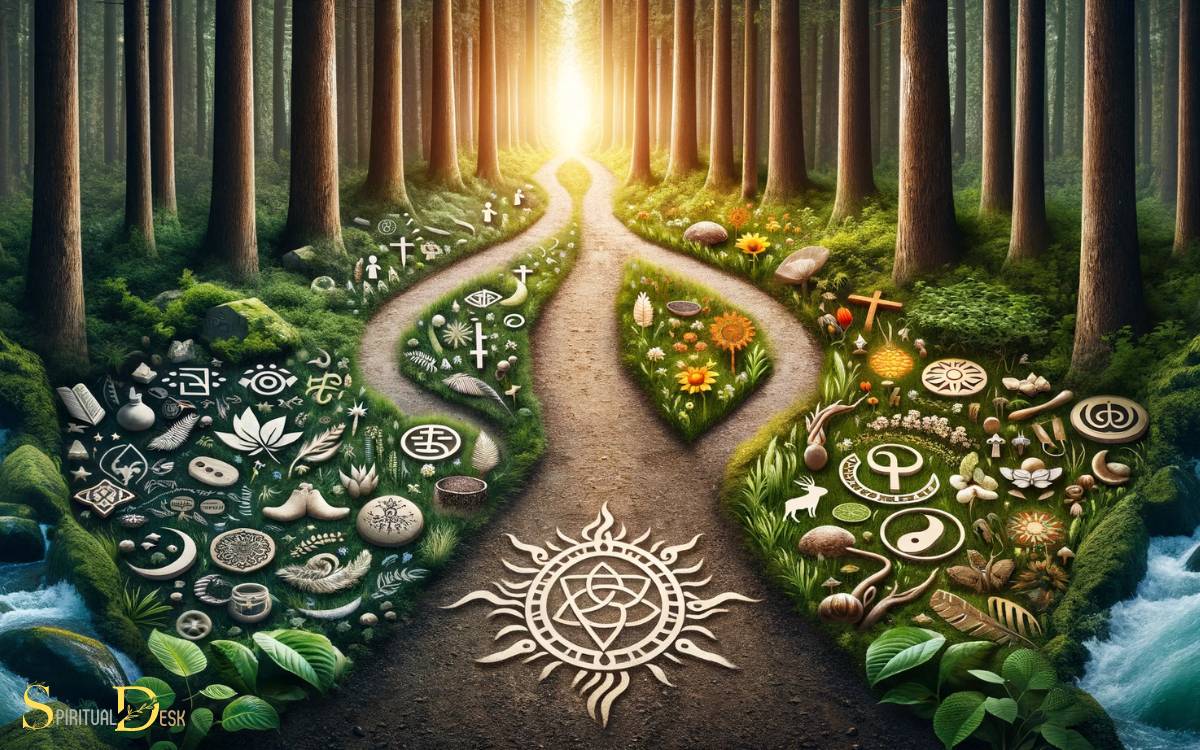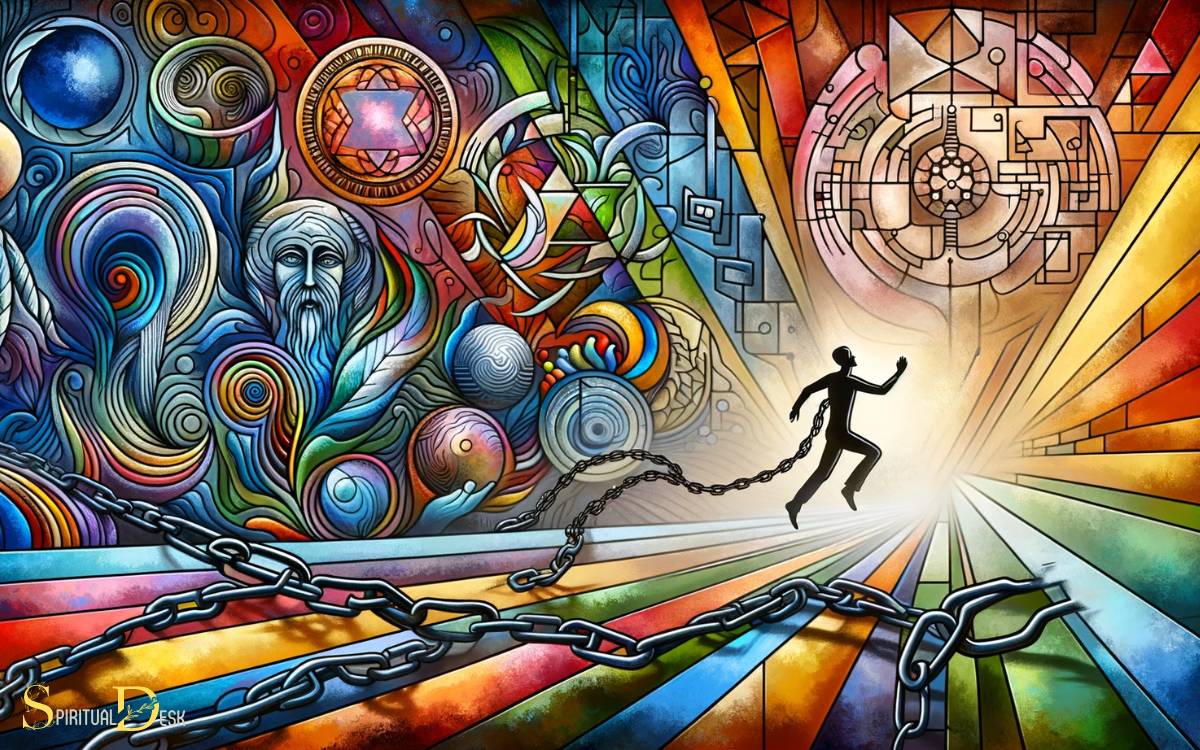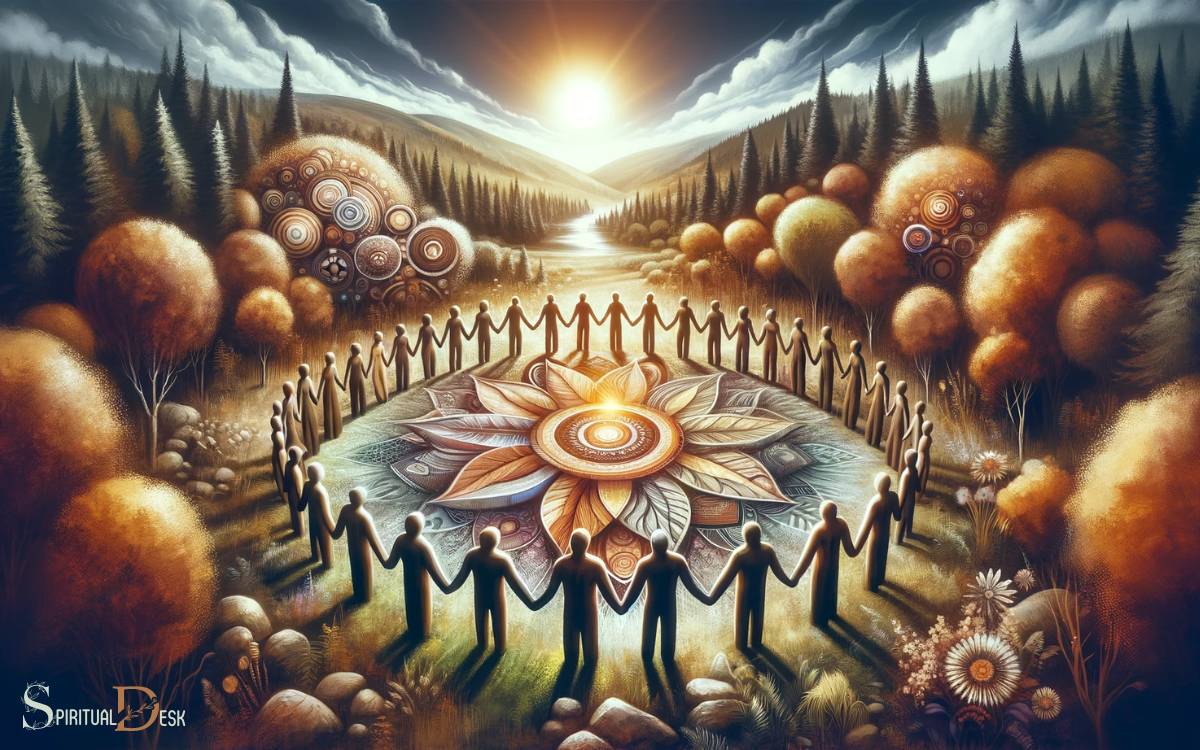Can Someone Be Spiritual Without Being Religious: Yes!
Yes, it is entirely possible to be spiritual without being religious. Spirituality is a broad concept that encompasses a sense of connection to something bigger than oneself, which can involve a search for meaning in life. It is a universal experience that touches all humans.
Spirituality often involves the belief in a higher power or the essence of the human spirit, but it does not necessarily require adherence to the rituals or beliefs of a specific religion.
Spirituality and religion are distinct concepts, though they often intersect. Religion typically involves specific beliefs and practices centered around a system of worship, often involving a deity or deities, moral codes, and a philosophy of life.
Spirituality, on the other hand, is more about personal growth, a sense of peace, and a connection to the world and the universe. Individuals may find spirituality through:
Spirituality without religion can lead to a personal and direct experience of the profound, guided by individual understanding and intuition.

Key Takeaway
Comparing Spirituality and Religion: Understanding the Differences
| Aspect | Spirituality | Religion |
|---|---|---|
| Definition | A personal, inner search for meaning often involving a connection to something greater than oneself. | An organized system of beliefs, practices, and rituals often centered around worship of a deity or deities. |
| Practices | Meditation, mindfulness, personal reflection, nature appreciation. | Prayer, worship services, rites, and ceremonies. |
| Beliefs | May or may not involve belief in a higher power; more individualistic. | Usually involves specific doctrines and tenets related to the divine. |
| Structure | Lacks formal structure; highly individualistic and personal. | Has formal structure including leadership, hierarchy, and community. |
| Community | Optional; may seek like-minded individuals or groups for shared experience. | Often involves a community of believers with shared practices and values. |
Exploring Personal Spiritual Beliefs

In my exploration of personal spiritual beliefs, I have found that introspection and self-reflection are essential components.
Taking the time to look inward, pondering life�s mysteries, and seeking to understand my place in the universe has been profoundly enlightening.
I�ve come to realize that spirituality is a deeply personal journey, and it doesn�t always align with organized religion. It�s about connecting with something greater than myself, whether that�s through nature, meditation, or acts of kindness.
This introspective process has allowed me to cultivate a sense of peace and purpose, and it continues to shape my understanding of the world around me.
While my beliefs may not fit into a traditional religious framework, they are meaningful and fulfilling to me, and that�s what matters most.
Understanding the Difference Between Spirituality and Religion

Understanding the difference between spirituality and religion�s core lies in recognizing that spirituality is a deeply personal journey, while religion often involves organized belief systems and rituals.
When we talk about spirituality, we are referring to a personal quest for understanding the meaning of life and our place in the universe.
Religion, on the other hand, typically involves organized practices, doctrines, and rituals that are shared by a group of people.
Here are some key distinctions between spirituality and religion:
- Personal vs. Organized: Spirituality is a personal and individual experience, while religion often involves organized structures and communities.
- Flexibility vs. Tradition: Spirituality allows for individual exploration and interpretation, while religion often follows established traditions and dogmas.
- Connection vs. Institution: Spirituality focuses on a personal connection with the divine or higher power, while religion often involves adherence to institutionalized practices and beliefs.
Understanding these differences can help individuals navigate their own paths towards spiritual fulfillment.
Finding Inner Peace and Purpose Outside of Religious Institutions

As a spiritual individual, I find inner peace and purpose outside of religious institutions. For me, it�s about connecting with the universe, being mindful, and seeking personal growth.
I find solace in nature, meditation, and self-reflection. These practices help me to cultivate a sense of inner peace and find meaning in life.
Additionally, I engage in activities that align with my values and contribute to the well-being of others. This gives me a profound sense of purpose and fulfillment.
While religious institutions offer guidance and community for many, I have found that my spiritual journey is deeply personal and doesn�t necessarily require organized religious practices. It�s about finding what resonates with me and brings a sense of tranquility and direction to my life.
Challenging Traditional Notions of Spirituality

My spiritual journey has led me to challenge traditional notions of spirituality, seeking a deeper understanding of the self and the universe.
In doing so, I�ve come to embrace the following perspectives:
1. Personal Connection: Rather than relying on intermediaries, I�ve found that spirituality can be deeply personal, fostering a direct connection with the divine or the universe.
2. Fluidity and Openness: I�ve learned to appreciate the fluidity of spiritual beliefs and the importance of remaining open to diverse perspectives and experiences.
3. Integration of Practices: I�ve found value in integrating various spiritual practices from different traditions, creating a unique tapestry that resonates with my individual journey.
Embracing Individual Spiritual Paths

I�ve always believed that spirituality is a deeply personal journey, and I think it�s important to embrace individual paths.
Each person�s spiritual journey is unique, and it�s empowering to explore non-traditional avenues of spiritual growth.
Let�s consider the significance of personalized spiritual exploration and the value in embracing diverse spiritual paths.
Personalized Spiritual Journeys
Embracing individual spiritual paths allows for a personalized and authentic connection to the divine. It�s a journey of self-discovery, where one can explore their beliefs and connect with spirituality in a way that resonates deeply with them.
Here are three key aspects of personalized spiritual journeys:
- Self-Exploration: Taking the time to understand one�s innermost beliefs and values, and how they align with spiritual principles.
- Freedom of Choice: Embracing the freedom to choose spiritual practices and beliefs that feel meaningful and authentic.
- Personal Growth: Using spirituality as a tool for personal growth, self-awareness, and finding purpose and meaning in life.
By embracing individual spiritual paths, people can cultivate a deep and meaningful connection to the divine that is unique to them. This personalized approach allows for a more fulfilling and authentic spiritual journey.
Non-Traditional Spiritual Exploration

Continuing on with personalized spiritual journeys, embracing individual spiritual paths allows for a diverse and authentic exploration of non-traditional spiritual fulfillment.
This approach acknowledges that each person�s spiritual journey is unique, and there isn�t a one-size-fits-all solution.
Non-traditional spiritual exploration involves seeking meaning and purpose outside the confines of organized religion, and it can encompass a wide range of practices such as meditation, nature-based spirituality, energy work, or personal rituals.
Embracing individual spiritual paths encourages introspection and self-discovery, empowering individuals to define their own beliefs and values.
It fosters an environment where people can explore different philosophies and traditions, ultimately leading to a deeper understanding of themselves and the world around them.
By embracing non-traditional spiritual exploration, individuals can find fulfillment and connection on their own terms.
Examining the Role of Community in Spiritual Practice

I�ve always found that having a supportive community can greatly enhance my spiritual journey. Whether it�s through shared beliefs or simply connecting with like-minded individuals, the impact of community on spiritual practice is undeniable.
It�s within these connections that I�ve experienced significant spiritual growth, and I believe that exploring the role of community in spirituality can provide valuable insights for those seeking a path outside traditional religious structures.
Community Support in Spirituality
Finding support from like-minded individuals has been integral to my spiritual journey, shaping and enriching my understanding of a higher purpose. The role of community in spiritual practice is crucial for fostering growth and connection.
Here are three ways community support enhances spirituality:
- Shared Wisdom: Engaging with a community allows for the exchange of diverse perspectives, insights, and experiences, contributing to personal growth and spiritual development.
- Emotional Support: Being part of a spiritual community provides a safe space for sharing struggles, doubts, and triumphs, fostering a sense of belonging and understanding.
- Accountability and Encouragement: Community members can offer encouragement, guidance, and gentle accountability, motivating each other to stay committed to their spiritual practices and values.
The communal support in spirituality offers a sense of belonging and a network of like-minded individuals on the spiritual journey.
Impact of Shared Beliefs

As an individual on a spiritual journey, I have experienced firsthand the profound impact of shared beliefs within a community, shaping and enriching my spiritual practice.
The role of community in spiritual practice cannot be overstated. Being part of a community that shares similar beliefs provides a sense of belonging, support, and understanding that is invaluable on this journey.
Spiritual Growth Through Connection
Continuing from the impact of shared beliefs within a community, it is undeniable that my spiritual growth has been profoundly influenced by the connections I have formed in this community.
The role of community in spiritual practice has been pivotal for me, and here�s why:
- Support and Encouragement: The connections within my spiritual community have provided unwavering support and encouragement, fostering an environment where I feel safe to explore and express my beliefs.
- Learning and Growth: Through these connections, I have been exposed to a diverse range of perspectives and ideas, which has broadened my understanding and facilitated significant personal growth.
- Shared Practices and Rituals: Engaging in shared practices and rituals with the community has deepened my spiritual experience, creating a sense of unity and shared purpose.
These connections have been instrumental in shaping my spiritual journey, and have significantly contributed to my growth and development.
As I reflect on the impact of community, it becomes apparent that navigating morality and ethics in a non-religious spiritual framework is a natural progression of this interconnectedness.
Navigating Morality and Ethics in a Non-Religious Spiritual Framework

One can navigate morality and ethics in a non-religious spiritual framework by examining personal values and seeking guidance from philosophical teachings. It�s important to reflect on what truly matters to me and how my actions impact others.
I find inspiration from various philosophical principles that promote compassion, empathy, and social responsibility.
Here�s a glimpse of how I approach morality and ethics in my non-religious spiritual framework:
| Personal Values | Philosophical Teachings | Application |
|---|---|---|
| Empathy | Golden Rule | Act with kindness towards others |
| Integrity | Kant�s Categorical Imperative | Make decisions based on universal moral laws |
| Social Responsibility | Utilitarianism | Strive to maximize overall well-being |
Conclusion
It�s absolutely possible to be spiritual without being religious. In fact, a recent survey found that 27% of Americans identify as spiritual but not religious. It�s all about exploring your own personal beliefs, finding inner peace and purpose, and embracing a unique spiritual path that resonates with you.
Whether you are part of a religious community or not, there are endless possibilities for a fulfilling and meaningful spiritual journey.






